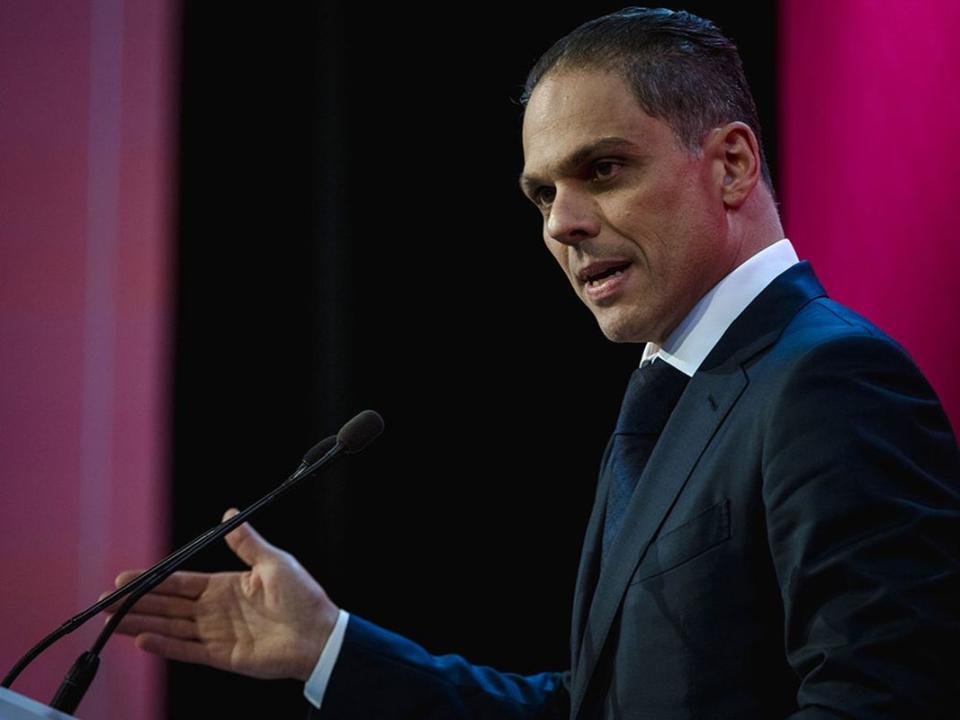Slower economy means Bank of Canada may have to cut before Fed, says National Bank CEO

Canada’s lagging economy means the Bank of Canada may have to cut interest rates before its American counterpart, a divergence that could bring further consequences, says the chief executive of National Bank of Canada.
Laurent Ferreira said with the U.S. economy growing at close to two per cent and Canadian growth stagnating, the countries’ respective central banks could end up on different timelines for lowering interest rates.
“In terms of rate cuts, the Bank of Canada might need to act before the U.S. Federal Reserve, which will bring a set of other issues like currency divergence, monetary policy and everything that comes with it,” Ferreira said at a financial services conference in Montreal hosted by his bank.
The CEO pointed to the strength of the U.S. labour market compared to Canada’s, as well as to how Canadian consumers are more sensitive to interest rate increases because of the nature of the domestic mortgage market. High immigration levels also pose a challenge, he said.
“I do believe that housing and immigration is a major conundrum for the Bank of Canada,” Ferreira said. “It is not modelled. Inflation today is mortgage renewal and rents. So those things are still uncertain.”
Last week, the Fed signalled three interest rate cuts for the year. The Bank of Canada is widely expected to start cutting rates in June.
With rate cuts on the horizon, Ferreira said he sees a lift in commercial lending and more financing activity. He also predicts a pickup in mortgages and some relief for clients with variable rates.
He also spoke about his bank’s credit cycle, saying it’s a little too early to call the peak on credit losses.
“I think, directionally, we’re going towards a peak,” he said.
Why Canada may need deeper rate cuts than other major economies
Bank of Canada policymakers at odds over when they can cut rates
More than half of National Bank’s mortgage book has been renewed so far and 60 per cent will be by the end of the year, he said, adding that delinquencies have also been up for some product types.
With half its mortgage book yet to renew, another 12 to 18 months are needed before calling the peak on credit losses, he said.
• Email: dpaglinawan@postmedia.com
Bookmark our website and support our journalism: Don’t miss the business news you need to know — add financialpost.com to your bookmarks and sign up for our newsletters here.

 Yahoo Finance
Yahoo Finance 